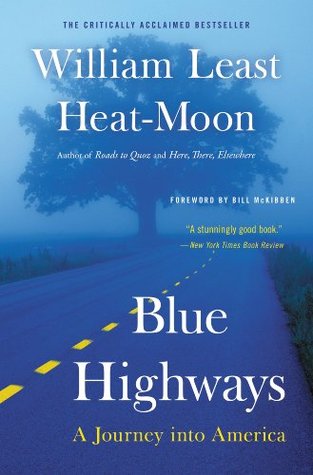More on this book
Community
Kindle Notes & Highlights
Read between
June 26 - July 11, 2022
“A man becomes what he does,”
There are two kinds of adventurers: those who go truly hoping to find adventure and those who go secretly hoping they won’t.
“I begin with this broken truth that I am. I start from the entire broken man—entire but not whole. Then I work to become empty. And whole.
Near Ville Platte a scene of three colors: beside a Black Angus, in a green pasture, a white cattle egret waited for grubbings the cow stirred up.
OH LORD, HELP ME THIS DAY TO KEEP MY BIG MOUTH SHUT.
Maybe experience is like a globe—you can’t go the wrong way if you travel far enough.”
maybe I was on the way to a dead end. I could only trust in the blue-highway maxim: “I can’t take any more” comes just before “I don’t give a damn.” Let the caring snap, let it break all to hell. Caring breaks before the man if he can only wait it out.
She longed for the true journey of an Odysseus or Ishmael or Gulliver or even a Dorothy of Kansas, wherein passage through space and time becomes only a metaphor of a movement through the interior of being. A true journey, no matter how long the travel takes, has no end. What’s more, as John le Carré, in speaking of the journey of death, said, “Nothing ever bridged the gulf between the man who went and the man who stayed behind.”
Other than to amuse himself, why should a man pretend to know where he’s going or to understand what he sees?
“You’ve got necessities in one box, your work in a briefcase, a creed in your shirt pocket. I admire the compression of it. I wish I could reduce it all to a couple of boxes. I like your self-sufficiency.”
The highway, oh, the highway. No place, in theory, is boring of itself. Boredom lies only with the traveler’s limited perception and his failure to explore deeply enough.
“In the United States there is more space where nobody is than where anybody is. That is what makes America what it is.”
In a hotel room at the geographical center of North America, a neon sign blinking red through the cold curtains, I lay quietly like a small idea in a vacant mind.
The windshield wipers, brushing at the fog, switched back and forth like cats’ tails. I lost myself to the monotonous rhythm and darkness as past and present fused and dim things came and went in a staccato of moments separated by miles of darkness.
I asked four people what kind of fish it was. One said, “What fish?” One said it was merely a generalized Christian symbol; two others said cod. I don’t suppose the Baptists prayed to fish, yet it did look that way. But cod giveth and cod taketh away, and cod fishing is no longer what it was.
men are most reasonable when they’re scared.”
The waitress, with a grudge of a face and a golden chain cutting into a puffy ankle, complained her way around.
“The evidence of history, whether it’s archives or architecture, is rare and worth preserving. It’s relevant, it’s useful. Here, it also happens to be beautiful. Maybe I’ve been influenced by the old Quakers who believed it was a moral question always to consider what you’re leaving behind. Why not? It’s not a bad measure of a man—what he leaves behind.”
By seeing both the futility in trying to relive the old life and the danger in trying to obliterate it, man can gain the capacity to make anew. His very form depends not on repetition but upon variation from old patterns.
The “right” way was worn so deeply in the earth as to be unmistakable. But without the errors, wrong turns, and blind alleys, without the doubling back and misdirection and fumbling and chance discoveries, there was not one bit of joy in walking the labyrinth. And worse: knowing the way made traveling it perfectly meaningless.


